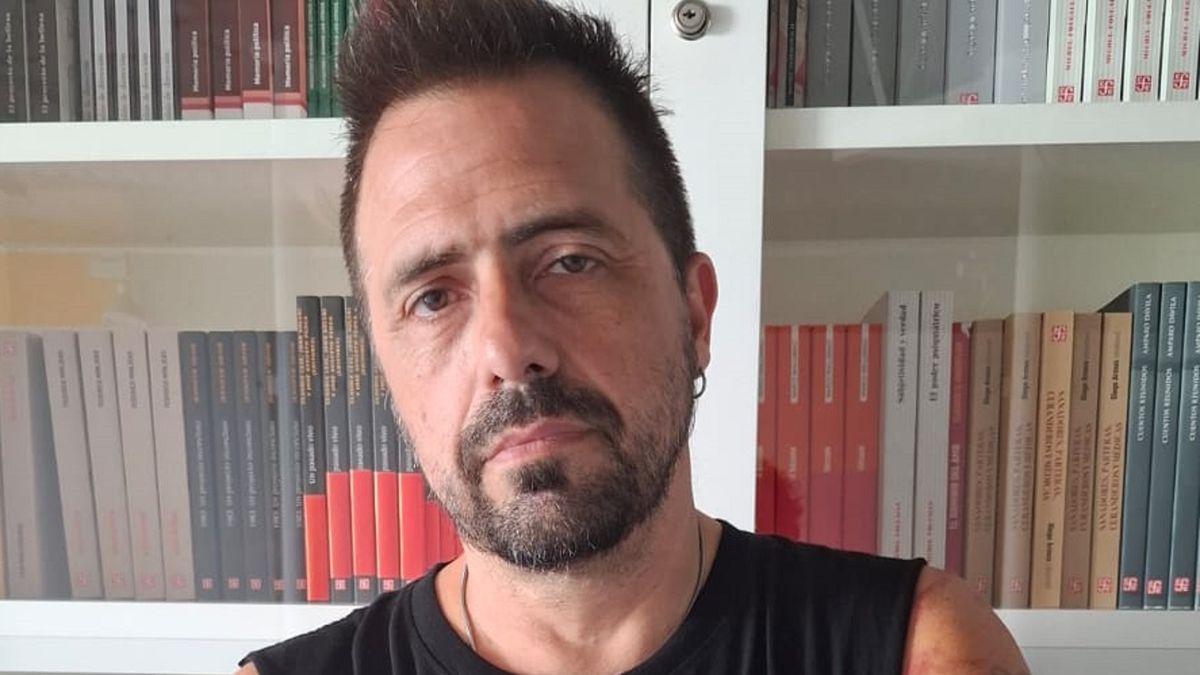The suicide of Borges and the biography of the revision that would use are starting points of “If you are reading this” (Culture Fund) where Kike Ferrari It offers an adventure novel, sometimes police, sometimes fantastic, which includes a tour of the popular narrative of Argentine literature. Singular and unexpected work of the author of already 15 books, who began with the consecration “That they look like flies”. We dialogue with him.
Journalist: What led him to write a novel about Borges’ suicide attempt?
Kike Ferrari: An object. When I read the “Borges, Splendor and Defeat”, by María Esther Vázquez, I knew the suicide attempt of Borges, the causes and the stages, and I asked myself what would have been of that revolver that I had not finally shot. From the prominence of that object I built the novel.
Q.: That is why one of the lines is the origin and destination of that revolver?
KF: I wanted two novels in the novel: the police, the investigation, where the revolver is now, and, the biographical novel of the revolver, from its manufacture to when it disappears in the year 2000, and that, at the same time, the route would allow me to tell somehow the Argentine literature from 1900 until now.
Q.: Just as Intrigue to know what crimes that revolver participated or because Borges chose to finish his life an Adrogué hotel, there are characters and phrases with a call that leads to the page of notes where he links the story with Argentine writers.
Kf: There is a game of complicities with the reader. A reader who imagined interested in our literature and who, once he knows that relationship, tries to guess or remember who are some characters and where they came from. There is also a game with the narrative tone. Treatment in chapters or passages to replicate the tone or style of certain authors. This can be read as a game of complicities or a kind of “choose your own adventure” for adults. And perhaps it can serve as a guide to read our literature from the perspective of popular genres. And you can read only the events, as an adventure novel.
Q.: Why mix famous authors with others little or nothing known?
Kf: I wanted to recover some that seem important to me such as Soiza Reilly, and others that I discovered working in the novel as Valentín Fernando, whose characters of the novel “From the meat” appear in the chapter of the Timba, or Adelaida Gili, the only woman of the contour group, of whom they appear, in the chapter of the death of Eva Perón, the characters of her story “Separate”. It also seemed to me that Marcelo Cohen had to be put in the foreground, which I think has no central place he deserves.
Q.: Borges is in the novel that consecrated him as a writer, is this book the tribute that owed him?
KF: Borges is central to Argentine literature, it seems very rare that, for someone who has grown up in our country, in our language, who is dedicated to reading and writing, Borges does not occupy a central place. Ricardo Piglia speaks of our three avant -garde: Walsh, Saer, Puig, who worked against Borges: one going to non -fiction, another writing novels, and the other diluting the voice. They work on the margins that Borges left. In my novel “that seem to flies” I found in Borges the possibility of organizing the story. In this book delivery of the central author of our tradition to talk about a literature that includes authors of the Río de la Plata. That the Uruguayans stay with Gardel, we stay with Onetti.
Q.: How did you built a realistic starting novel, police and science fiction end?
KF: For me writing is having a structure. Although he does not know very well that he will go inside. That structure was modified by what the novel was requiring. As I grew up, I realized what I wanted to tell. The end, a little police and a bit fantastic is tied to the name that I choose for the revolver brand, Seele & Waleis. The pseudonym of Luis Varela, author of the first Argentine police novel, is Waleis, and Selele is the character of “Mándorate Journey Nic Nac to Planet Mars”, by Eduardo Holmberg, our first science fiction novel. Police and science fiction are the two largest lanes of the popular genres, which are going to take Borges and Bioy. About the end the revolver can be left by a Gorodischer or Soriano character. The tension between science fiction and police, between fantastic and realism is the central tension of Argentine literature. My novel has a first moment linked to realism and an end linked to the fantastic.
Q.: What was your narrative reference for the writing of “If you are reading this”?
KF: A text and two key authors for this novel. The text: “Tlön, Uqbar, Orbis Tertius” by Borges, with fiction getting into reality and modifying it. That was the text that accompanied me the most during the construction of “if you are reading this.” Then, two authors: Onetti, which as rarely accompanied me in the construction of the story, and, in the other arc of aesthetics, Manuel Puig, because in this novel I sought to dissolve my voice, that it appears as little as possible, that at times it looks like Arlt, in another to Perlongher, in another to Soiza Reilly and in others to Quiroga. Those were the guidelines with which I built this novel. As in Onetti the limits are diffuse, as in Puig what are diffuse is the voices, you never know very well who is talking.
Q.: What are you writing now?
KF: A story for a tribute to Rubem Fonseca that Nicolas Ferraro asked me, and with him we will start writing a novel that will be a tribute and continuation of “Night without moons or suns”, by Rubén Tizziani, of which fifty years are turned.
Source: Ambito
I am an author and journalist who has worked in the entertainment industry for over a decade. I currently work as a news editor at a major news website, and my focus is on covering the latest trends in entertainment. I also write occasional pieces for other outlets, and have authored two books about the entertainment industry.




